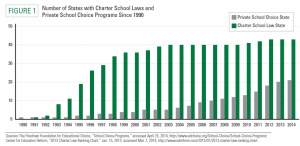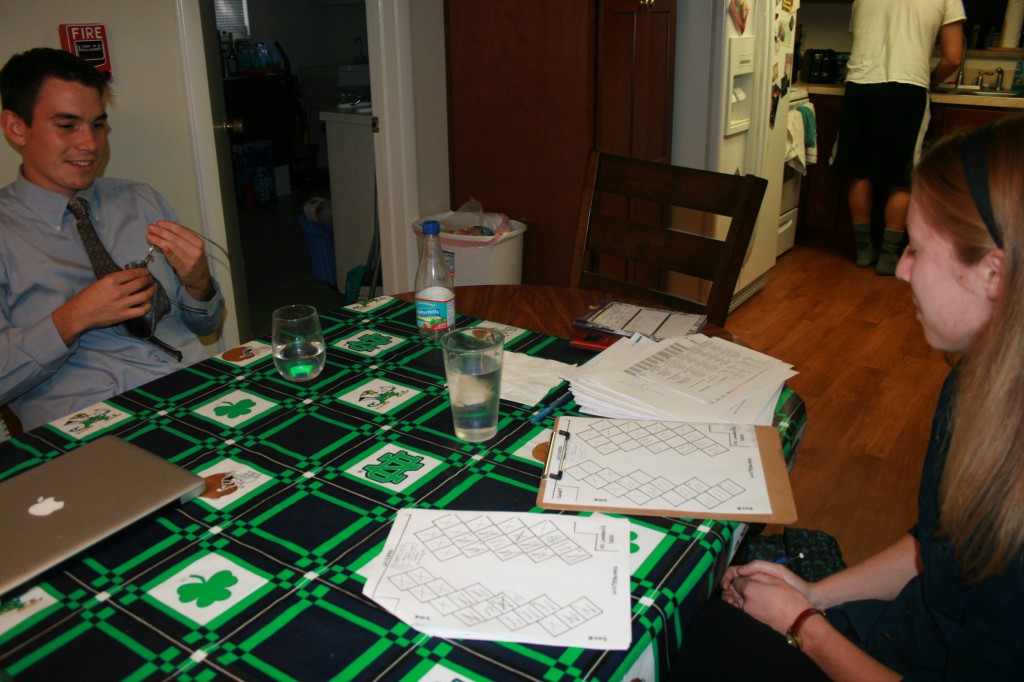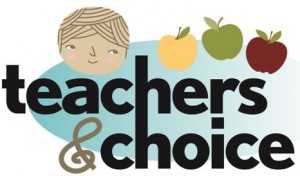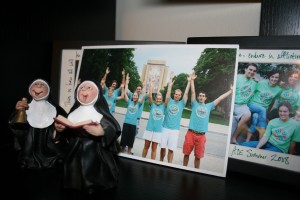Editor’s note: This is the first post in our school choice wish series. See the rest of the line-up here.
by Ben DeGrow
The power of a scholarship can open up doors not only to a new school, but to a new path in life. That reality has brought one Denver man back to his roots, where he works full time to help provide those opportunities for a new generation.
Fifteen years ago, James Coleman was an African-American middle school kid living with his mom. They had been back in Denver for a year, after a painful separation from James’ stepfather in Florida. He had spent most of his young life with relatives in a gang-ridden neighborhood in Las Vegas.
Back in the city of his birth, 12-year-old James seemed to be on a predictable, and not very hopeful, course. Enthralled with an urban subculture in which it was cool to act like a “punk,” he was getting in a lot of trouble at Smiley Middle School.
“My issue was discipline,” James tells me in a phone conversation. “As a result of not being disciplined, I wasn’t focusing in class. I was a distraction to other students, too.”
Enter ACE Scholarships, then a brand-new nonprofit organization dedicated to giving K-12 students private tuition aid. James’ mother learned about ACE from her friend Kathy Porter, whom the organization had hired to help administer the program.
An ACE scholarship helped give the young man a fresh start at Excel Institute, a Baptist school that primarily serves the African-American community. Administrator Vivian Wilson’s higher behavioral expectations, strictly enforced, set a tone for focused learning. So did the daily dress code.
“Black slacks, black tie, blue Oxford shirt, black shoes,” James quickly fires off. His recollection is noteworthy, considering he only spent the seventh grade at Excel. But it was consequential. “That one year set me straight.”
Thankfully, the ACE scholarship moved with James’ family as they relocated farther east to the city of Aurora. He attended Aurora Christian Academy for the next five years thanks, in part, to ACE’s support. His mom also sacrificed to cover part of the tuition, and the private school found additional resources as well.
That’s what James describes as the scholarship organization’s secret sauce: “ACE works because we don’t do it alone. The family comes to the table with funds; the community, through ACE, comes to the table with funds; and the private school also invests in the child. All three working together to give a child a better life.”
James earned his high school diploma at Aurora Christian with a lasting appreciation. He also met his future wife Shayna there. They are now blessed with 4-year-old twins. (more…)
A new report argues supporters of private school choice can learn from public charter schools and should look for ways to "break down the walls" between the two sectors.

While most states have authorized charter schools for more than a decade, private school choice programs are starting to become more widespread. Chart from the Friedman Foundation's report.
Private school choice programs serve only a few hundred thousand students nationally, a fraction of the 2.3 million enrolled in charters. But more states have created tax credit scholarship and voucher programs in recent years, and existing programs, including the tax credit and McKay scholarships in Florida, are growing.
A report released this morning by the Friedman Foundation for Educational Choice argues that as private school choice programs grow and proliferate, they can draw a few lessons from the charter sector about how to create more quality options for students.
Report author Andy Smarick - a consultant at Bellwether Education Partners who's among the leading proponents of a "three-sector approach" to education reform - writes that private schools could learn from charters' use of networks and incubators to improve their operations. He also advocates for a charter-style approach to accountability, in which participating schools get screened by authorizers — agencies that hold them to performance-based contracts in exchange for more freedom to operate.
That idea may prove controversial among private schools that have traditionally not seen as much regulation as their publicly funded counterparts. But as states debate how they will regulate private school choice programs, Smarick writes that authorizers would be in a position to fine tune their judgement calls about how private schools are evaluated. For example: Should they be publicly accountable for the performance of all their students, or just the performance of students who receive tuition subsidies through tax credit or voucher programs?
"The contractual relationship, if implemented properly, will also be more nuanced - rendering fairer judgments and respecting the unique characteristics of private schools - than, say, a single letter grade for a school that would be generated via a state’s accountability system," he writes.
Other insights from the charter sector are more straightforward, such as the use of incubators and networks. (more…)

ACE teachers-in-training Ben Horton and Ashley Logsdon talk about being a part of the University of Notre Dame's effort to revive Catholic schools. Both students are earning a master's degree in education, teacher certification and the experience of a lifetime as they lead classes at local Tampa Bay area schools.
While getting a history degree at a small Catholic college in New Hampshire, Ben Horton figured he had two options after graduation: law school or teaching. Then, a scholarship his junior year sent him to Belfast, Ireland, where he taught at a Catholic school near the Peace Walls dividing Catholic and Protestant neighborhoods. There, among the children of working-class families struggling with violence, drugs and teen pregnancy, he discovered a passion for teaching – and his faith.
“I like trying to give kids some hope, some opportunity, some guidance,’’ Horton said.
Now the 24-year-old University of Notre Dame graduate student teaches middle-schoolers at the Holy Family Catholic School in St. Petersburg, Fla. It’s part of a two-year service program developed by the Indiana university’s Alliance for Catholic Education, or ACE.
With 180 teachers nationwide, the program is similar to the bigger and better-known Teach for America, but with a faith-based twist. The goal: to train future educators specifically for Catholic schools, which are dealing with declines in enrollment and aging staff. The hope is to help revitalize those schools, so long and so proudly the cornerstone of urban education, and maybe even boost the faith itself.

ACE teachers in service spend two years in the program, earning classroom cred and making lasting friendships.
“Catholic schools in a sense are the future of the church,’’ said Horton, who will finish the program in June with a master’s in education, teaching credentials and a plan to work in Catholic schools. “What ACE is doing, it’s really a noble mission because these schools serve such an important role.’’
It’s a task that comes as the country struggles to answer big questions about education, said Amy Wyskochil, director of operations for the service program and a former ACE teacher. The alliance also trains future Catholic school principals, and it partners with local dioceses to strengthen their schools’ academics, enrollment and leadership.

Brianna Hohman teaches second-graders at St. Joseph's Catholic School in Tampa. She loves the job, but plans to pursue a different field after graduation.
"Education is the most important challenge facing our country,'' Wyskochil said. "Each year, millions of students fail to reach their potential because they lack access to a quality education. Catholic schools are a critical part of how we will solve our country's educational crisis. We need talented, committed new teachers to meet that challenge by becoming Catholic school teachers.''
Horton, a lifelong Catholic school student, started teaching at Holy Family last year. The school, with 204 students in K-8, has maintained a steady enrollment thanks to a healthy parish, said Sister Flo Marino. But when veteran teachers started to retire four years ago, the superintendent signed on with ACE.
“We just felt that it was a great opportunity to have young, vibrant, interesting people taking on the job of education,’’ said Marino, the only remaining religious sister at her school. “It gives schools that opportunity to revive their programs.’’ (more…)